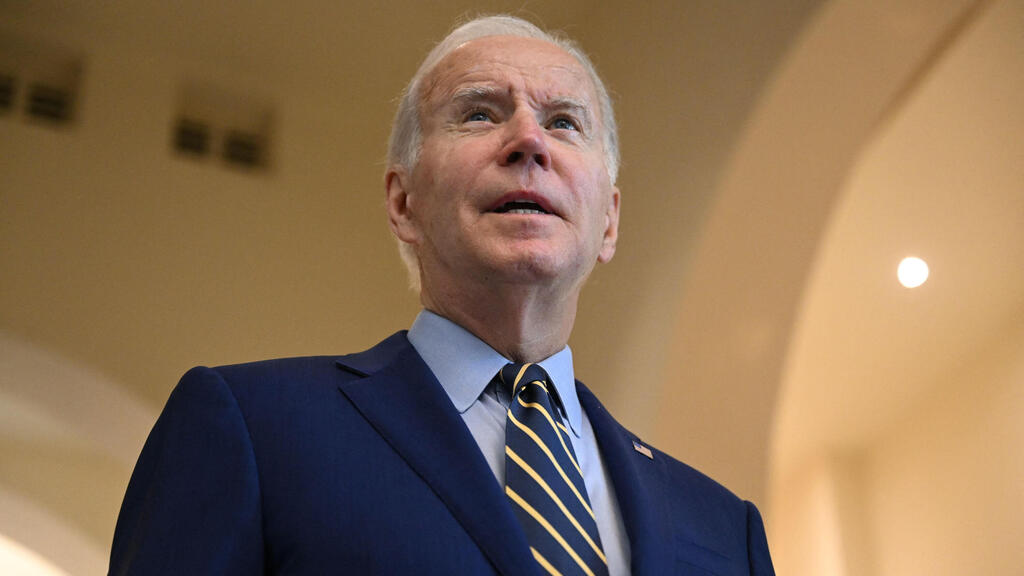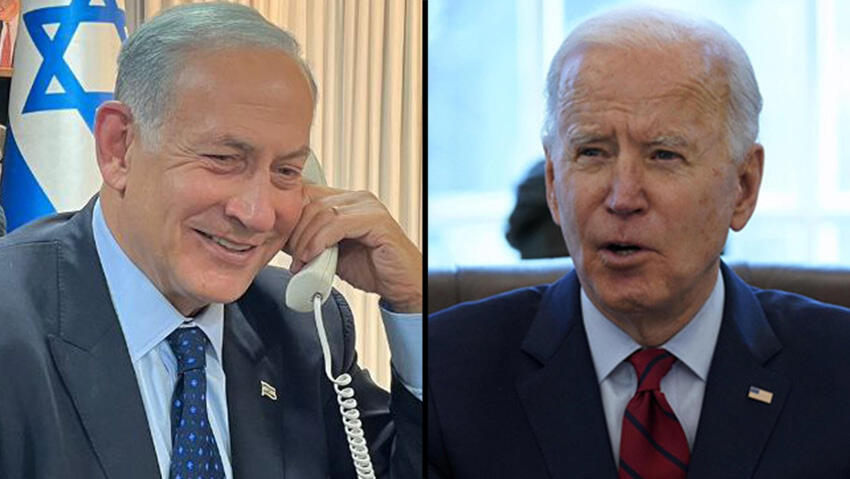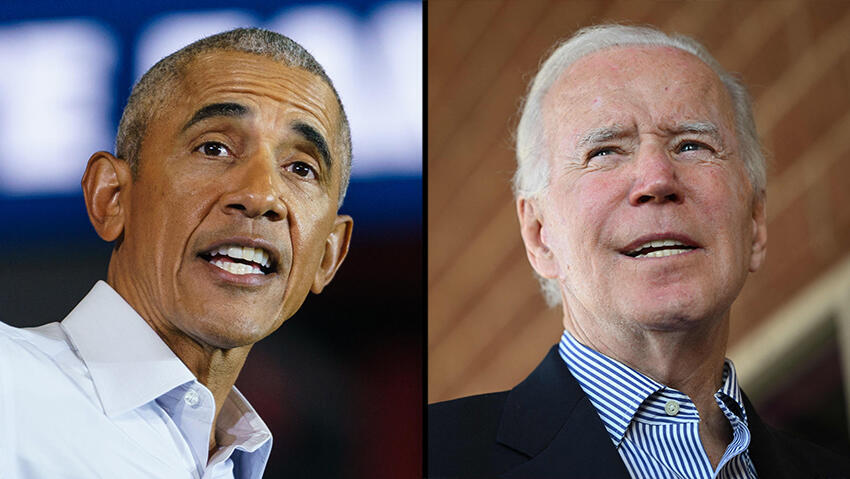Getting your Trinity Audio player ready...
With the United States continuously changing its posture in the Middle East, the region is eyeing midterm election results from last week carefully to see how changes in the power balance may affect policy.
The main parties, the Democrats and the Republicans, have different and sometimes conflicting views on the Middle East. President Joe Biden, from the Democratic Party, is now faced with an almost perfectly divided America.
“Traditionally, Congress is not involved in foreign policy matters, which are considered the prerogative of the president,” said Professor Eytan Gilboa, an expert on U.S.-Israel relations at Bar-Ilan University and a senior fellow at the Jerusalem Institute for Strategy and Security. “However, Congress does approve the budget, including foreign aid, and also senior appointments, such as ambassadors.”
Ahead of the midterm elections, President Biden was already written off as a lame duck. However, the results showed surprising strength for his Democratic Party. Even though it wasn’t a Democratic landslide, it was not a resounding defeat, either.
Results are not yet final, but there appears to be a tie in the Senate, while the Republicans are closer than the Democrats to winning a slim majority in the House of Representatives.
“In the end, the results require cooperation between the two parties,” said Gilboa. “But this will not have a great impact on foreign policy. Usually, there is cooperation and even consensus on foreign matters.”
The war in Europe is just one example.
Decisions to give almost $20 billion in aid to Ukraine for its war with Russia were approved by both parties in recent months. Before last week’s election, both Democratic and Republican candidates vowed to continue cooperating on the matter. However, in the runup to the elections, several Republicans said they would be looking into how the U.S. was spending its money abroad.
This could impact aid not only to Ukraine but also to American allies in the Middle East.
“Biden will face more challenges than he did before the elections,” said Dr. Shay Har-Zvi, senior researcher at the Institute for Policy and Strategy at Reichman University. “There will be gaps, but with a slim majority, there is a question as to how much influence the Republicans will have.”
One of President Biden’s current foreign policy headaches is U.S. relations with Saudi Arabia. Not heeding the White House’s request to increase oil output to ameliorate a global energy crisis, Saudi Crown Prince and Prime Minister Mohammed bin Salman (MbS) and the U.S. president are on a collision course.
5 View gallery
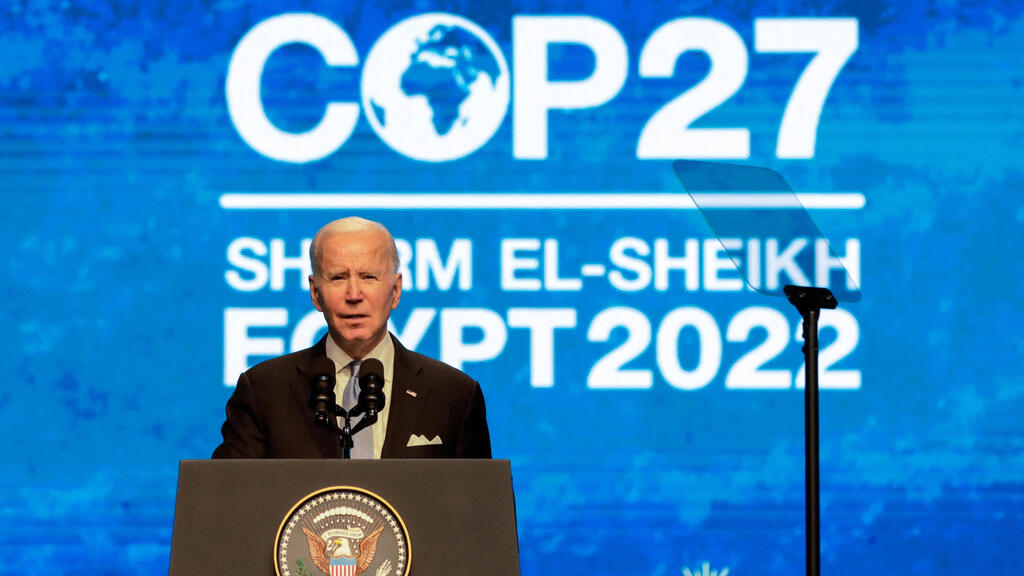

Joe Biden at the 2022 United Nations Climate Change Conference - COP27
(Photo: Reuters)
President Biden met MbS in July of this year under heavy criticism from members of his party.
This coming Tuesday, when the U.S. president and MbS will both be attending the G20 summit in Bali, Indonesia, they are not expected to meet. In fact, it appears they plan to skillfully avoid a direct meeting.
President Biden needs to balance the voices within his party, some increasingly antagonistic to his leadership.
“The progressive wing of the Democratic Party, which strengthened to 10 representatives in this election, is a loud minority unpopular within most of the party,” said Gilboa, “They will seek to lower the defense budget and lessen American involvement abroad.”
This could be especially relevant in policy toward Saudi Arabia, the largest customer of American weapons and defense systems.
“It is a very complex relationship,” said Har-Zvi. “It will continue but there will be tensions. Defense relations will remain unharmed. But as soon as the atmosphere is not good, it could have implications on the dynamic of the relationship, without a dramatic impact.”
“The relations with Saudi Arabia are very important to the U.S. because of their continued presence in the region,” he added.
An increasingly close relationship between China and Saudi Arabia is seen by both American parties as an impediment to relations. Former President Barack Obama’s “pivot to Asia” policy shifted the focus from the Middle East and Europe to Asia in an attempt to counter increasing Chinese influence. President Obama’s policy was adopted by the Trump and Biden administrations, as well. Experts believe that President Biden, emboldened by a surprise outcome in the midterm elections, coupled with geostrategic developments and a continued Chinese threat toward Taiwan, will seek to toughen his stance toward China. For this, he will likely have bipartisan support.
5 View gallery
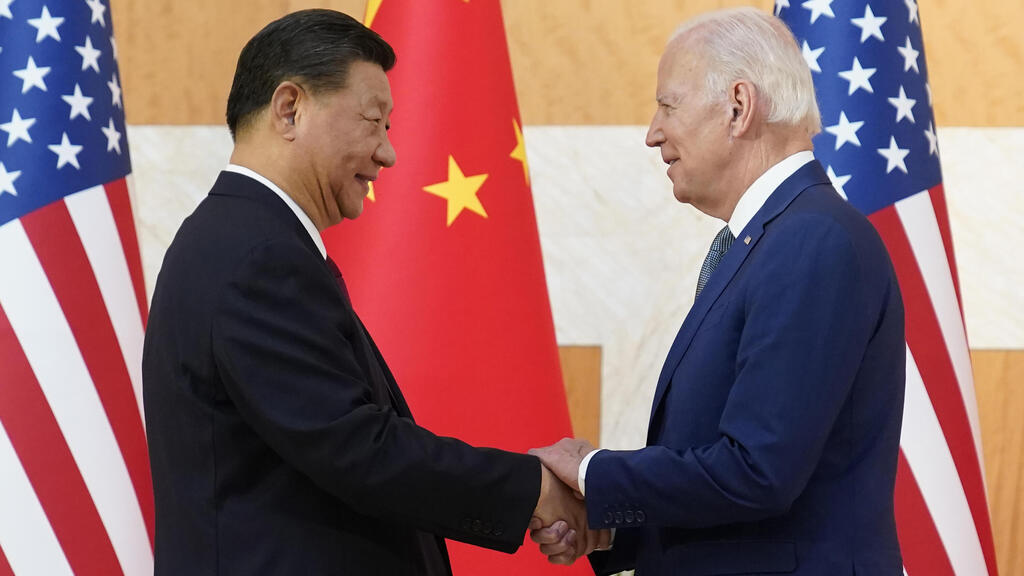

Chinese President Xi Jinping and U.S. President Joe Biden's in Indonesia and
(Photo: AP)
In recent years, the U.S. has gradually sought to lessen its involvement in the Middle East. Presidents Obama, Trump, and Biden all attempted to scale down the American presence in the region.
“The U.S. might like to do this but reality dictates otherwise,” said Har-Zvi. “While they are less present, they will remain in the Middle East because they understand it is an important arena, more so because of increasing Chinese presence in the region.”
Increasing Russian influence in the region is also a cause of concern for Washington.
Any promotion of normalization between Israel and additional Arab countries under the Abraham Accords now looks highly unlikely. There was hope that U.S.-brokered relations between Israel the United Arab Emirates, Bahrain, and Morocco in 2020 would be just the beginning of a new Middle East. When President Biden visited Jerusalem and Jeddah this past summer, there was talk of the possibility of ties between Israel and Saudi Arabia.
“There is no chance of this now,” said Gilboa. “Not only are the relations with the U.S. not good, but the re-election of Benjamin Netanyahu also prevents this. The accords will not be broadened; there will even be difficulty to maintain what has already been achieved.”
“Americans will now focus on preservation and damage control, not looking to change things,” said Har-Zvi.
Indeed, the Israeli election just days before the midterm elections in the US will also have an impact on American policy in the region. Netanyahu, Israel’s longest-serving prime minister, is expected to re-enter office in the coming weeks, heading a far-right government that has already raised concern in Washington.
“Netanyahu will have to reign in the extremist elements in his new government,” said Gilboa. “Democratic administrations usually do not get along with right-wing Israeli governments.”
In a previous term, when Netanyahu faced President Obama, there was a series of confrontations between the two that led to a souring of the personal relationship. According to Gilboa, Netanyahu “ruined” the relationship between him and the Democratic Party. The lowest point was in 2015 when Netanyahu addressed Congress on the subject of the Iranian nuclear deal after receiving an invitation from Republicans, essentially circumventing the American president and breaching protocol.
“Israel needs to do everything in its power to maintain the strategic partnership with the U.S.,” said Har-Zvi. “In the end, the Americans will judge the Netanyahu government based on its actions.”
A government with extreme elements will be a test for Netanyahu and for U.S.-Israeli relations. The two could be on a collision course regarding the conflict with the Palestinians, the Iranian nuclear agreement, and other sticking points.
“Netanyahu will be between a rock and a hard place,” said Gilboa. “A lot of things can go wrong. He is supposed to be aware of this.”
Biden now leads a Democratic Party whose support for Israel is not as steadfast as in the past.
“The Israeli government will need to see how it highlights its democratic values in order to not alienate younger Democrats who display less support for Israel,” said Har-Zvi.
American willingness to stand up for Israel in international forums could be depressed if there is increasing friction.
The Biden Administration faces huge challenges in the international arena, the least of them in the Middle East. Therefore, it will likely not rock the boat in order to be able to focus elsewhere.


